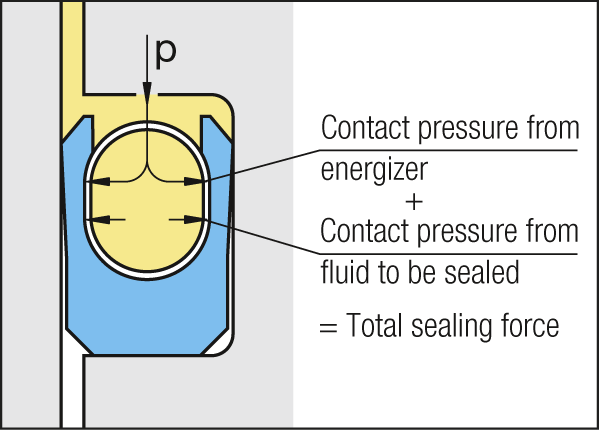TECHNICAL DATAS
| axial inner sealing | axial inner sealing | axial inner sealing |
| Motion | Motion | Motion |
| rotary, partially static | rotary, partially static | rotary, partially static |
| Direction of pressure | Direction of pressure | Direction of pressure |
| unidirectional | unidirectional | unidirectional |
| Operating pressure (MPa) | Operating pressure (MPa) | Operating pressure (MPa) |
| 45 | 30 | 40 |
| Rotary speed (m/s) | Rotary speed (m/s) | Rotary speed (m/s) |
| 5 | 5 | 5 |
| Diameter range (mm) | Diameter range (mm) | Diameter range (mm) |
| 7 to 700 | 7 to 700 | 7 to 700 |
| Housing | Housing | Housing |
| split |
split |
split |
| Type 646 | axial inner sealing |
|---|---|
| Motion | rotary, partially static |
| Direction of pressure | unidirectional |
| Operating pressure (MPa) | 45 |
| Rotary speed (m/s) | 5 |
| Diameter range (mm) | 7 to 700 |
| Housing | split |
| Type 666 | axial inner sealing |
| Motion | rotary, partially static |
| Direction of pressure | unidirectional |
| Operating pressure (MPa) | 30 |
| Rotary speed (m/s) | 5 |
| Diameter range (mm) | 7 to 700 |
| Housing | split |
| Type 686 | axial inner sealing |
| Motion | rotary, partially static |
| Direction of pressure | unidirectional |
| Operating pressure (MPa) | 40 |
| Rotary speed (m/s) | 5 |
| Diameter range (mm) | 7 to 700 |
| Housing | split |





